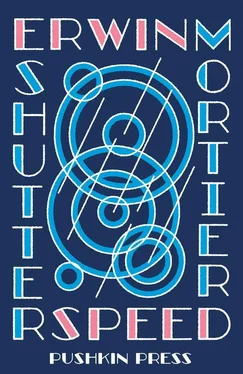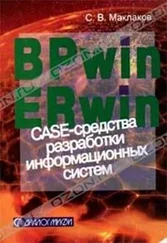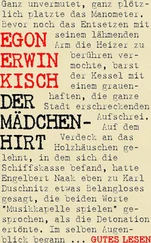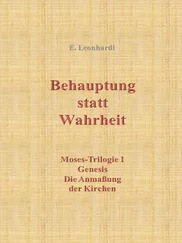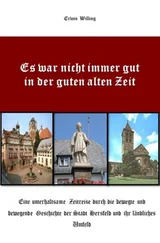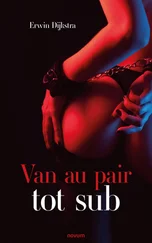I had brought the schoolmaster’s book, which lay open on my lap. By then I had got to the chapter entitled ‘Man Revealed’. Aunt would have hated the pictures.
As early as 1628 , read the caption to a diagram of a human heart sprouting antlers of blood vessels, William Harvey, an English physician, discovered the circulation system in which the blood mass is pumped through the veins by the action of the heart .
‘Quite the little bookworm, that boy,’ someone said. ‘Nose permanently buried in a book.’
I pretended not to hear.
Not long afterwards, Albrecht von Heller, Swiss biologist and universal genius, described the irritability of muscles and the action of nerve tissue. On the heights of Parnassus, the pioneers of Medicine, Herophilus and Erasistratos, drank a toast of Ambrosia in celebration of the transcendence of the flesh by means of the Electricity of Animation. A great stride forward in the domain of nervous activity!
‘He’s such a good reader,’ said Aunt. ‘It’s all Greek to me, but he speaks so nice and proper, just like they do on the radio. Go on, Joris, read us something.’
‘You won’t like it,’ I replied, glad of an excuse. ‘There, have a look.’
I turned the book around so that everyone in the shop could see the picture of the atlas vertebra captioned An appropriate name for the Heroic Bone that supports the Skull .
‘Very complicated, I’m sure,’ muttered one of the customers, a farmer’s wife who twitched her shoulders and pressed her shopping bag to her stomach every time she opened her mouth.
‘Oh, that’s what he likes best,’ said Aunt. Despite her queasiness she sounded proud. ‘But put away that book now, dear, and get me a tin of apricots from up there.’
‘Don’t want the young folk to get too full of themselves, do we?’ she smiled, winking at her clientele.
When I was halfway up the ladder, reaching for the tinned fruit, my attention was caught by two figures on the pavement shielding their eyes against the glare as they peered through the plate glass: a woman who struck me as a bit older than Aunt Laura, and beside her a girl with jet black hair. They both wore wide-brimmed straw hats, and made to step into the shop. I had never seen them before.
The shop bell tinkled. The last customers to have come in twisted round to look, and appeared to recognise the woman. There was a ripple of curiosity and surprise, but the newcomer put her gloved, right-hand forefinger to her lips to silence them. Taking the girl by the hand, and unnoticed by Aunt at the counter, she squeezed past the customers at the back to examine the merchandise in the windows. She ran the tip of her forefinger over the fly swatters, which Uncle had tied in bunches on either side of the displays because there was so much demand for them at this time of year, especially among farmers’ wives. The woman apparently found them dusty, for she rubbed her forefinger over her thumb several times.
The girl gave a little neigh of laughter, at which her companion murmured ‘Shush’.
They emanated the sort of elegance I had only seen before in photos of my mother’s childhood, and in the old fashion magazines on the bottom shelf of the landing cupboard, where Aunt kept a variety of lumber. It was as if there had been a tornado in the night that had scooped up the pair of them, blown them halfway across the country and dropped them in the field just outside the village once the storm subsided.
The woman’s gaze wandered over the shelves and the rack of apothecary jars — empty but kept by Uncle for appearance’s sake — and stopped at my knees. I was halfway up the ladder holding a tin of apricots.
Then the woman’s eyes met mine. Hers were bright blue.
‘Monsieur,’ she said, inclining her head graciously.
‘Monsieur,’ echoed the girl, who was standing beside her.
The shop was almost empty when Aunt looked up from her work at last and noticed the newcomers.
‘Well I never …’ she said, coming out from behind the counter to greet them.
‘Laure,’ said the woman.
‘Hélène,’ stammered Aunt, untying her apron. ‘Quelle surprise!’
She put her apron on the counter and shook hands with the woman, after which they touched their cheeks to each other while pursing their lips.
‘Nous sommes arrivées hier soir, pendant l’orage,’ said the woman. ‘Nous venons de Bruxelles. This young lady has expressed the desire to pay her uncle a visit. Her parents are away in France for a week or two, aren’t they, Isabella? Come now, say bonjour to Madame Laure.’
The girl shook hands with Aunt Laura and curtsyed prettily.
‘How nice that you have come to pay your dear uncle a visit,’ Aunt retorted in a French that sounded a bit halting to my ears, but I felt a stab of envy nevertheless because I could understand only half of what she was saying.
‘I think your uncle must feel quite lonely here at times, all alone in the old house,’ Aunt went on. ‘I’m sure he is very pleased to have visitors.’
The girl seemed unimpressed by the compliment. She spoke French, too. ‘He always tells me to be careful and not to tread on the lettuce when I’m playing in the vegetable garden,’ she said. ‘He says little girls get up to mischief.’
She paused. ‘But I’m not a little girl. I’m a young lady, and I have manners.’
‘Well well,’ Aunt smiled, reverting to Flemish. ‘She can stand up for herself all right, that’s for sure. A real Van Callant, I do believe. And how is the dear Baron? We haven’t seen very much of him lately.’
‘He can’t wait for the hunting season to begin,’ said Hélène. ‘It was such a relief for all of us when old Marie agreed to stay on in Monsieur’s service after poor Jerome died.’
She turned to me. ‘And who is this brave young man on the ladder?’
‘Tell Madame your name,’ instructed Aunt.
I came down the ladder. ‘Joris, Madame. Joris Alderweireldt.’
‘Werner’s brother’s boy,’ explained Aunt. ‘You remember …’
‘Oui, je sais …’ replied Hélène. She turned to the girl, saying: ‘The young man’s father is deceased. His mother lives in Spain for most of the year.’
‘Ah, je comprends,’ said the girl, without deigning to look at me.
‘Yes indeed,’ said Aunt, crossing to the window to let down the blinds. ‘Found herself some Juan over there, a bullfighter I shouldn’t wonder. Not really in our league, of course …’
‘Une histoire malheureuse, toute cette affaire,’ said Hélène.
Aunt Laura hung the Closed sign on the shop door. ‘No doubt about it,’ she concurred, ‘a very sad business.’
ACCORDING TO MR SNELLAERT, THE VAN CALLANTS WERE of great and glorious lineage, though they had come down in the world of late. It was true that Master Theodore, the last Baron of Stuyvenberghe, did not show his face much nowadays, but we were not to forget that his ancestors had written important chapters of our history with their own blood.
‘What does it say on the saints’ pedestals in church?’ he asked one day during our history lesson. ‘What does it say beneath the coat of arms with three golden hinds on an azure ground?’
He waited a while in stern silence to emphasise our ignorance, after which he supplied the answer himself with a wag of his finger: ‘Groeninghe Velt! Groeninghe Velt! That’s what it says. And what does it mean?’
Despite the fact that the Van Callants spoke better French than Flemish these days, back in 1302, on 11 July to be exact, one of their kin, by the name of Jean, had been a noble warrior thrusting his sword into the bowels of French horses in the mud of the Groeningen Creek and, as the master put it, had made mincemeat of Philip’s army between the soup and the spuds.
Читать дальше
